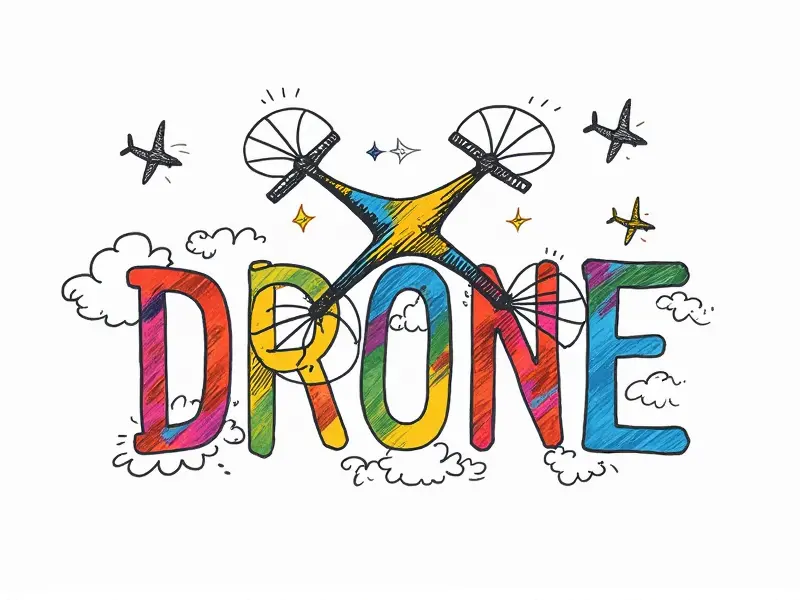Do FPV drones have GPS?

Do FPV Drones Use GPS Technology?
First-person view (FPV) drones are increasingly popular among enthusiasts and professionals alike, but one common question that arises is whether these high-speed racing machines utilize GPS technology. While some FPV drones do incorporate GPS modules for enhanced features like waypoint navigation or return-to-home functionality, the primary focus of most FPV drones remains on speed, agility, and maneuverability.
Are GPS Features Common in FPV Drones?
The integration of GPS into FPV drones is not as widespread as it might be with other types of drones. This is primarily because FPV racing emphasizes real-time control and manual piloting skills rather than autonomous navigation or waypoint tracking. However, certain high-end models do offer optional GPS modules to cater to specific needs such as automated landing or return-to-home features.
How Important is GPS for FPV Drone Pilots?
For most FPV drone pilots, the importance of GPS lies in its ability to provide additional safety and convenience rather than core functionality. While GPS can offer benefits like automatic returns to a home point or improved stability during flight, it does not significantly impact the primary objective of racing drones—speed and agility.
Can FPV Racers Rely on GPS Navigation?
In the context of FPV racing, relying solely on GPS navigation is generally impractical. The fast-paced nature of FPV racing requires quick decision-making and precise control, which are better achieved through manual piloting rather than automated systems. However, some pilots may use GPS as a supplementary tool for orientation or to ensure safe landings.
Does GPS Enhance FPV Drone Performance?
The impact of GPS on FPV drone performance is minimal compared to its benefits in other types of drones like surveying or delivery drones. While GPS can offer some advantages such as improved stability and automated features, the core performance metrics for FPV drones—such as speed, maneuverability, and responsiveness—are not significantly influenced by GPS.
The Role of GPS in FPV Drone Flight
GPS plays a supportive role rather than a central one in FPV drone flight. It can assist with features like return-to-home or waypoint navigation but does not replace the need for skilled piloting and real-time decision-making. The primary focus remains on the pilot's ability to control the drone manually, making split-second decisions during high-speed races.
Do Competitive FPV Drones Rely on GPS?
In competitive FPV racing, reliance on GPS is minimal due to the nature of the sport. Pilots need to maintain full manual control over their drones for optimal performance in challenging courses and tight turns. While some high-end models may offer optional GPS modules, they are rarely used competitively.
Are GPS Modules Standard in FPV Drones?
GPS modules are not standard equipment in most FPV drones due to the focus on speed and agility rather than autonomous features. However, certain advanced models or specialized racing drones might include optional GPS capabilities for additional functionalities such as return-to-home or automated landing.
Can FPV Pilots Benefit from Drone GPS?
While not essential, FPV pilots can benefit from drone GPS in several ways. For instance, GPS can enhance safety by providing automatic returns to a home point if the battery runs low or the signal is lost. Additionally, it can offer improved stability during flight and assist with orientation in complex environments.
Can FPV Drones Navigate Without GPS?
The vast majority of FPV drones are designed to operate effectively without GPS. Pilots rely on their skills and real-time control rather than automated navigation systems. This manual approach is crucial for the high-speed, agile maneuvers required in FPV racing.
Why Some FPV Drones Don't Have Built-In GPS
The absence of built-in GPS in many FPV drones stems from their primary purpose—speed and agility over autonomous features. The lightweight design and focus on performance optimization mean that GPS, which adds weight and complexity, is often omitted to maintain the core functionality and competitive edge.
Conclusion
In summary, while some advanced or specialized FPV drones may incorporate optional GPS modules for enhanced safety and convenience features, the majority of racing drones do not rely on GPS technology. The primary focus remains on manual piloting skills, speed, and agility, making GPS a supplementary rather than essential feature in most FPV drone applications.

